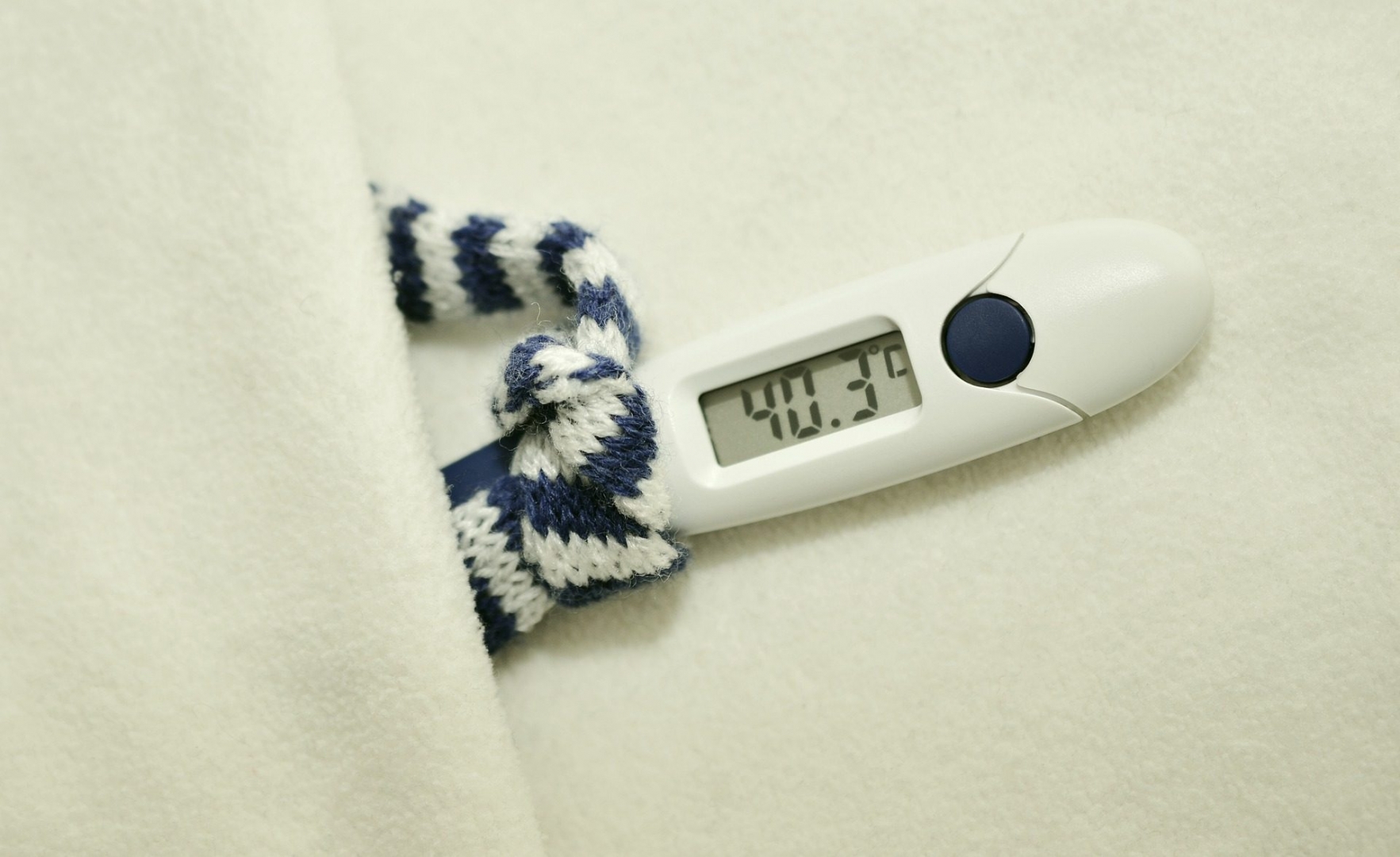
Introduction
Fever is a common yet often misunderstood health condition that affects individuals across all ages. Imagine waking up in the middle of the night, drenched in sweat, with your body temperature soaring—knowing when to seek help can make all the difference.
A fever is more than just an elevated body temperature; it's a crucial part of your immune system's response to infections and other health issues. Understanding how to handle it appropriately is essential for maintaining good health and preventing complications.
Why is it important to know when to seek medical help for a fever?
- Infants: A high fever in infants can be particularly alarming and might indicate a serious underlying condition.
- Children: For children, fevers can sometimes lead to febrile seizures, which require immediate medical attention.
- Adults: In adults, high-grade fevers may signal severe infections or other serious conditions.
- Elderly: Older adults have unique health considerations that make timely medical intervention critical.
By reading this article, you'll gain a comprehensive understanding of:
- What constitutes a fever and its common causes
- Symptoms associated with different grades of fever
- When to go to the ER for fever across various age groups
- Effective treatment options and preventive measures
Stay informed and ensure you know when it's time to consult healthcare professionals for fevers affecting you or your loved ones.
Understanding Fever
Definition and Immune System Response
A fever is a temporary increase in body temperature, often due to an illness. It plays a crucial role in the body's immune response by creating an environment less favorable for pathogens and enhancing the efficiency of immune cells.
Normal Body Temperature Ranges by Age Group
Understanding normal body temperature ranges helps identify what constitutes a fever:
- Infants: Around 97.9°F to 100.4°F (36.6°C to 38°C)
- Children: Approximately 98.6°F (37°C) with slight variations
- Adults: Typically 97°F to 99°F (36.1°C to 37.2°C)
- Elderly: Can be slightly lower than younger adults, usually around 96.8°F to 98.6°F (36°C to 37°C)
Common Causes of Fever
Several factors can trigger a fever, including:
- Infections such as COVID-19, seasonal flu, strep throat, and urinary tract infections
- Heatstroke: Extreme heat exposure leading to elevated body temperature, which can be further understood in the context of heat-related illnesses.
- Medical Conditions like autoimmune disorders, certain types of cancer, and inflammatory conditions
Understanding these aspects helps in recognizing when fever may indicate a severe underlying issue requiring medical attention. For instance, while fever is generally a sign of infection or illness, it can also be caused by extreme temperature exposure or other serious medical conditions that require immediate attention.
Symptoms of Fever
Understanding the symptoms of fever helps identify whether it's a minor issue or something requiring medical attention. Common symptoms include:
- Chills and Shivering: Often the first sign of a fever, as the body attempts to raise its temperature.
- Sweating: As the fever progresses, sweating helps cool the body down.
- Headaches: These can range from mild to severe and are often accompanied by general weakness and fatigue.
Low-Grade vs. High-Grade Fevers
Differentiating between low-grade and high-grade fevers is crucial for appropriate management:
- Low-Grade Fever: Typically ranges from 98.8°F (37.1°C) to 100.3°F (38°C). Often manageable with rest and over-the-counter medications.
- High-Grade Fever: Generally defined as an oral temperature above 103°F (39.4°C) in adults or a rectal temperature of 102°F (38.9°C) in children over three months.
Symptoms Requiring Immediate Attention
Certain symptoms accompanying a fever signal severe conditions necessitating urgent care:
- Persistent vomiting or diarrhea
- Difficulty breathing
- Severe headache
- Skin rash
- Abdominal pain
- Painful urination
- Stiff neck, confusion, light sensitivity, or dizziness in adults
For infants, especially under three months, any rectal temperature of 100.4°F (38°C) or higher warrants immediate medical evaluation.
Understanding these signs helps determine when you should go to the ER for a fever, ensuring timely and appropriate medical intervention.
When to Seek Medical Help for Fever by Age Group
Infants (0-2 Years)
Infants are particularly vulnerable to fevers and require special attention:
- For infants under 3 months, a rectal temperature of 100.4°F (38°C) or higher warrants immediate medical attention.
- Look out for these signs that need immediate attention:
- Lethargy or unresponsiveness
- Persistent crying or irritability
- Difficulty feeding or refusal to eat
- A rash that does not fade under pressure
Parents should consult a healthcare professional promptly if any of these symptoms accompany a fever.
Children (3 Months – 10 Years)
Children's bodies are resilient, but certain fever conditions need medical consultation:
- For children aged 3-6 months, a rectal temperature of 102°F (38.9°C) or higher is concerning.
- For children over 6 months, look for fevers exceeding 103°F (39.4°C).
- Consult a doctor in the following situations:
- Fever lasting more than three days
- Severe headache, vomiting, or diarrhea
- Difficulty breathing or persistent cough
- Febrile seizures, which affect about one-third of children aged 6 months to 5 years during high fevers
Understanding febrile seizures is crucial; although typically not harmful in the long term, they can be alarming and necessitate medical evaluation.
Adults (11 – 65 Years)
Adults can generally manage mild fevers at home with rest and medications like acetaminophen or ibuprofen. However, specific conditions demand professional attention:
- An oral temperature of 103°F (39.4°C) or higher should prompt a call to your healthcare provider.
- Watch out for these symptoms along with high fevers:
- Severe headache or confusion
- Persistent vomiting or diarrhea leading to dehydration
- Skin rash that worsens quickly
- Painful urination or abdominal pain
Knowing when you should go to the ER for a fever in adults is essential. Symptoms like difficulty breathing, chest pain, and severe stiffness in the neck require immediate emergency care.
Elderly (65+ Years)
Fevers in older adults can be subtle but potentially serious due to weakened immune systems and comorbidities:
- Lower immune response can lead to less noticeable symptoms.
- Chronic conditions may exacerbate fever impacts.
- Seek immediate care if you experience any of the following:
- A fever above 102°F (38.9°C)
- Confusion or altered mental state
- Rapid heart rate or breathing difficulties
Understanding how to reduce fever in elderly individuals includes ensuring adequate hydration and avoiding excessive heat exposure while closely monitoring for more severe symptoms.
Monitoring these guidelines on when to consult a doctor for fever helps ensure timely and appropriate medical intervention, safeguarding health across all stages of life.
Treatment Options for Fever
Home Remedies and Over-the-Counter Medications
For mild fevers, various home remedies and over-the-counter (OTC) medications can be effective. Home remedies include:
- Cool compresses: Applying cool cloths to the forehead.
- Lukewarm baths: Helps in reducing body temperature.
- Adequate clothing: Dressing in light clothing to avoid overheating.
OTC medications like acetaminophen (Tylenol) and ibuprofen (Advil, Motrin) can help lower fever and alleviate discomfort. These medications are typically safe for most age groups but always follow the dosage instructions on the package or as directed by a healthcare provider.
Importance of Hydration and Rest
Staying hydrated is crucial when managing a fever. Fever increases fluid loss through sweating, leading to dehydration. Drinking plenty of water, clear broths, or electrolyte solutions can help maintain hydration levels. Additionally, rest is vital for recovery as it allows the body to focus its energy on fighting the underlying infection causing the fever.
Warning Against Using Aspirin in Children
Aspirin should not be given to children or teenagers with viral infections due to the risk of Reye's syndrome — a rare but serious condition that causes swelling in the liver and brain. Alternatives like acetaminophen or ibuprofen are safer options for managing fever in young individuals.
Understanding these treatment options can help manage symptoms effectively while ensuring safety across different age groups.
Complications Associated with Fever
High fevers can lead to several complications, particularly in young children. One of the most concerning is febrile seizures, which typically occur in children aged 6 months to 5 years. These seizures are linked to rapid spikes in body temperature and can be frightening for parents. Symptoms may include:
- Loss of consciousness
- Jerking or twitching movements
- Stiffening of the body
- Rolling eyes
While febrile seizures are usually harmless and do not cause long-term health issues, it's crucial to seek medical advice if one occurs.
Persistent high fevers also signal the need for immediate medical attention. Knowing when to go to the emergency room for a fever can be lifesaving. Consider seeking emergency care if:
- An infant under 3 months has a rectal temperature of 100.4°F (38°C) or higher.
- A child over 3 months has a fever of 102°F (38.9°C) or higher that persists despite medication.
- An adult has an oral temperature exceeding 103°F (39.4°C).
Severe symptoms requiring attention include:
- Difficulty breathing
- Severe headache
- Persistent vomiting or diarrhea
- Stiff neck or sensitivity to light
- Confusion or difficulty waking up
If any of these symptoms accompany a high fever, it’s essential to visit the nearest ER without delay. However, understanding the difference between situations that require urgent care versus those needing an ER visit can also help in making informed decisions about healthcare.
How to Prevent Infections That Cause Fevers
Get Vaccinated
Vaccinations are essential in preventing fevers by protecting against various infectious diseases. Vaccines like the flu shot, MMR (measles, mumps, and rubella), and COVID-19 vaccines significantly reduce the risk of infections that often cause fevers. It's important for everyone to stay up-to-date with their vaccination schedules:
- Infants and children: Follow the pediatric vaccination schedules recommended by healthcare providers.
- Adults: Ensure vaccinations are current, including boosters for tetanus, diphtheria, and pertussis (Tdap).
- Elderly individuals: Receive vaccines such as the pneumococcal vaccine and shingles vaccine to prevent complications from common illnesses.
Practice Good Hygiene
Implementing proper hygiene practices is another effective way to minimize exposure to infectious agents that can cause fevers. Key practices include:
- Handwashing: Regularly wash hands with soap and water for at least 20 seconds, especially after using the restroom, before eating, and after coughing or sneezing.
- Avoiding close contact: Stay away from individuals who are sick or showing symptoms of illness.
- Surface disinfection: Regularly clean and disinfect frequently-touched surfaces like doorknobs, light switches, and mobile phones.
- Cough etiquette: Cover your mouth and nose with a tissue or your elbow when coughing or sneezing. For more detailed guidelines on respiratory hygiene, refer to CDC resources.
Maintaining these preventative measures helps in reducing the spread of infections and subsequently lowers the incidence of fever across different age groups.
Conclusion: Stay Informed and Stay Safe!
Understanding the symptoms and treatment options for fever across different age groups is crucial. Recognizing when to seek medical help can prevent complications and ensure timely care.
Key Takeaways:
- Symptoms to Watch: Be aware of common fever symptoms such as chills, headaches, and sweating.
- Age-Specific Guidelines: Infants, children, adults, and the elderly each require different considerations when it comes to fever management.
- Treatment Options: Utilize home remedies, over-the-counter medications, and prioritize hydration and rest.
Share this comprehensive guide with family and friends. Staying informed can make a significant difference in managing health concerns related to fevers. Keeping vigilant ensures better health outcomes for all ages.
"Stay informed, stay safe, and take action when necessary."
FAQs (Frequently Asked Questions)
What is a fever and why is it significant to health?
A fever is defined as an elevation in body temperature, commonly indicating an immune response to infections or other medical conditions. It plays a crucial role in the body's defense mechanism, helping to fight off pathogens.
When should I seek medical help for a fever in infants?
For infants aged 0-2 years, immediate medical attention is necessary if they have a rectal temperature of 100.4°F (38°C) or higher, or if they exhibit signs of distress such as persistent crying, difficulty breathing, or lethargy.
How can I treat a mild fever at home?
Home treatments for mild fevers include ensuring adequate hydration, rest, and using over-the-counter medications like acetaminophen or ibuprofen. It's important to avoid aspirin in children due to the risk of Reye's syndrome.
What symptoms indicate that I should go to the ER for a fever?
You should seek emergency care for a fever if you experience severe symptoms such as difficulty breathing, chest pain, confusion, persistent vomiting, high-grade fever (above 103°F or 39.4°C), or if the fever lasts more than three days.
What are some complications associated with high fevers?
Complications from high fevers can include febrile seizures in young children and other severe health issues that may require immediate medical attention. Persistent high fevers can also indicate serious underlying conditions.
How can I prevent infections that lead to fevers?
Preventative measures include following vaccination protocols and practicing good hygiene such as regular handwashing, avoiding close contact with sick individuals, and maintaining a clean environment to reduce exposure to infectious diseases.
Disclaimer: This article is for informational purposes only and does not constitute medical advice. Always consult with a healthcare professional before starting any new treatment regimen.




